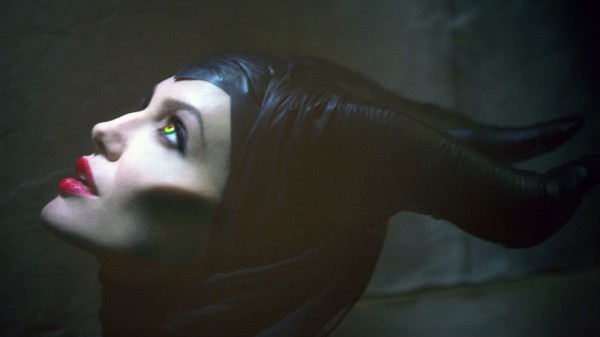Review: Jolie’s a fun hero-villain in ‘Maleficent’

This image released by Disney Enterprises, Inc., shows actress Angelina Jolie in the title role of “Maleficent,” the villian from the 1959 classic “Sleeping Beauty.” AP
Maybe it’s too soon to say the tide has shifted definitively. But it’s certainly been a unique time for fairy-tale villains.
After hundreds of years of moral clarity, suddenly we’re getting a new look at these evil creatures, who are actually turning out to be complex beings, and not that bad at all. Really, they’ve just been misunderstood. (And, by the way, those charming princes? Highly overrated.)
The most obvious recent example is “Frozen,” the animated Disney blockbuster that showed us how the Snow Queen, long portrayed as an icy-hearted villain, was actually a tragic victim of circumstance, with a pure and loving heart. And now we have “Maleficent,” which tells us that one of the most evil characters in all of pop culture is equally vulnerable and misunderstood.
Plus, she’s gorgeous. Duh. She’s Angelina Jolie.
All this is a rather seismic development in fairytale-dom. There are numerous versions of “Sleeping Beauty,” stemming back even before Charles Perrault’s from 1697, but the fairy who casts an angry spell on the baby princess, dooming her to prick her finger, has always been, well, just nasty.
Article continues after this advertisementBut now, 55 years after Disney introduced the character named Maleficent in its 1959 classic film— and colored her skin an eerie green — the studio is back with a live-action (not to mention 3D) Maleficent who’s more superheroine than evil fairy. Think Maleficent by way of Lara Croft.
Article continues after this advertisementAnd though Maleficent is no longer green-skinned, it’s hard not to think of another green-skinned villainess who’s also been rehabilitated, by means of the durable Broadway hit “Wicked”: the witch Elphaba from “The Wizard of Oz,” who, it turns out, we just didn’t know enough about.
And so it is in “Maleficent,” in which director Robert Stromberg and screenwriter Linda Woolverton take us back to the fairy’s youth to better understand her. She’s a plucky young thing with lovely wings and bright pink lipstick, which will turn blood-red when she becomes an adult (the fairy world clearly isn’t lacking for cosmetics.)
One day she meets a young man from that other, darker world, where humans live. The two form a strong bond. But the ugliest human emotions — jealousy and ambition — will intervene. Young Stefan will grow into the power-hungry older Stefan (the wild-eyed South African actor Sharlto Copley.) And his stunning betrayal of Maleficent will instantly harden her, turning her into the villainess we recognize.
Alas, the story’s still all about a guy, in the end. But we digress.
“Maleficent” is surely targeted to the same audience — young and female — which has so lovingly embraced “Frozen” and its appealing message of female solidarity and empowerment. But “Frozen” felt clever, charming, and fresh. “Maleficent,” less so.
Part of this is due, paradoxically, to Jolie’s star wattage. Don’t get us wrong: she’s the best thing about the movie, and always worth watching. But it blunts the effectiveness of the narrative if we can never quite believe Maleficent is bad. That’s because we know she’s essentially good, and she seems to know that we know it; You can see it in the upturned wrinkle of her mouth.
And frankly, the other characters are simply not that interesting — Stefan, but also Elle Fanning’s Aurora, or “Sleeping Beauty.” The best scenes Aurora has, in fact, are when she’s a gurgling baby and then, adorably, a toddler, played by none other than 5-year-old Vivienne Jolie-Pitt. (In the movie’s one laugh-out-loud moment, Maleficent tells Aurora: “I don’t like children.”)
But Fanning as Aurora is too boringly sweet — especially compared to the fabulous-in-every-way Maleficent, with her blazing lips, fashionable black headgear and exaggerated cheekbones, not to mention her way around a quip.
In the end, “Maleficent” is fun for its appealing visuals — especially in the forest — and for watching Jolie. But that’s not enough to make the whole film interesting. As the minutes tick by, you might even start feeling a bit like Sleeping Beauty herself comes to feel: Drowsy.
“Maleficent,” a Walt Disney Studios release, is rated PG by the Motion Picture Association of America “for sequences of fantasy action and violence, including frightening images.” Running time: 97 minutes. Two and a half stars out of four.
MPAA rating definition for PG: Parental guidance suggested. Some material may not be suitable for children.